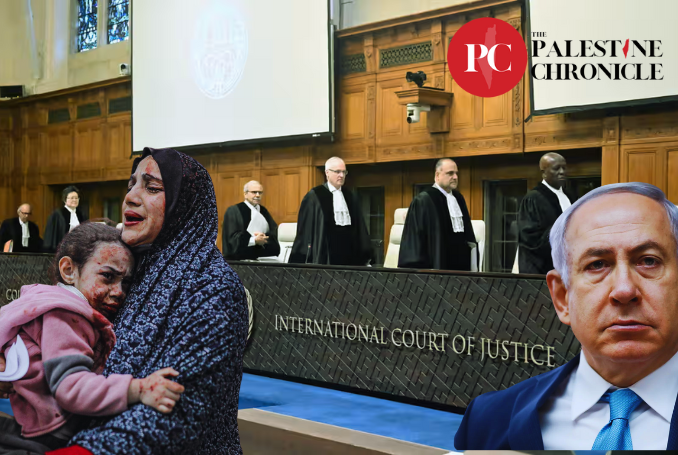
By Ilan Pappe – The Palestine Chronicle 
If committed activists needed an additional reason for why what they are doing is essential and just, then the ICJ’s ruling is a chilling reminder of what is at stake here.
The moral and brave approach by South Africa to the International Court of Justice (ICJ), hoping for a ruling that would bring an end to the genocide of the Palestinians in Gaza, was not matched by the court on Friday, January 26, 2024.
I am not underestimating the significance of the court’s ruling. True, the court confirmed the right of South Africa to approach the ICJ and substantiated the facts it presented, including the assumption that Israel’s actions could be defined as genocide under the terms of the genocide convention.
In the long run, the language and the definitions used by the ICJ in its first ruling will constitute a huge symbolic victory on the way to Palestine’s liberation.
But this is not why South Africa approached the ICJ. South Africa wanted the court to stop the genocide. And therefore, from an operative point of view, the ICJ missed an opportunity to stop the genocide, mainly because it still treated Israel as a democracy and not a rogue state.
Palestinians, and whoever supports any struggle against crimes committed by countries of the global north, ceased a long time ago to be impressed by symbolic actions. Actions against rogue states only are meaningful if they have an operative side to them.
The operative actions suggested by the ICJ are basically a demand from Israel to submit, in one month’s time, a report on measures taken to prevent genocide in Gaza.
No wonder, the Israeli government has already hinted that such an assignment would not be high on its agenda and, most importantly, would not have any impact on its policies on the ground.
Even if the ICJ would have demanded, as it should have, a ceasefire, it would have taken quite a while to implement it, given the Israeli intransigence. But the message to Israel would have been clear – and effective.
License to Commit Genocide
The important thing to remember in any engagement with Israel is that what matters is not how the message is intended but how it is understood by Israeli policymakers.
The Western solidarity with Israel, shown on October 7, 2023, was understood by its policymakers as a free license to commit genocide in Gaza. Similarly, opting for a report instead of action is understood in Israel as a slight slap on the hand, which gives Israel at least another 30 days to continue its genocidal policies.
If this is the case, what would be left of Gaza in a month? What would be the magnitude of the genocide in a month’s time, if not only the West but also the ICJ, refuses to call for an immediate ceasefire? I am afraid that there is no need to answer these terrible questions.
More importantly, the crime has already been committed, it is not as if there is still time to stop it. Therefore, unless the ICJ believes that Israel’s actions be reversed and rectified, it sends a very confused message. It seems to hint that, although the actions may be a crime, if the carnage is limited, then this would be welcomed by the ICJ.
History of Failure in Palestine
The ICJ seemed to lack courage when it refrained from demanding what many countries in the global south and a huge number of people in the global civil society were asking for in the last three months.
If this whole process ends with the usual conclusion that international law has no power to stop the destruction of Palestine and the Palestinians, this will have even a greater impact on the question of Palestine.
In fact, this awareness could severely undermine the confidence, which is already very low, of the global south in the universality of intentional law.
Ever since its final institutionalization after the Second World War, the international law failed to deal properly with colonialism as a crime and was never able to challenge settler colonial projects like Israel.
It also became clear that imperialist policies pursued by the US and Britain, in clear violation of international law, are totally exempt from international law’s jurisdiction. Hence, the US was able to invade Iraq with a stark violation of international law and Britain now plans to send, without fear of reprisal, asylum seekers to Rwanda.
In the case of Palestine, throughout 75 years of the ongoing Nakba, international law – through its official and informal representatives, practitioners and delegations – was completely ineffective. It did not stop the killing of one single Palestinian; it did not lead to the release of one single Palestinian political prisoner, nor did it prevent the ethnic cleansing of Palestine. Indeed, the list of its failures is too long to be detailed here.
But There is Hope
There is a new, important lesson that should shape our activity and inform our hopes for the future.
We already learned that there is no hope for change within Israeli society, a lesson that was ignored by those involved in the so-called peace process.
The failure to understand the DNA of the Zionist society allowed Israel, since its inception, to kill Palestinians incrementally and massively either directly, by shooting them, or indirectly, by denying them basic human conditions for living.
This process, led by the US, was based on the formula that only after “peace” is restored, Israel would be obliged to change its ruthless policies on the ground.
This false paradigm has totally collapsed, even if the Biden Administration attempts, these days, to resurrect it, along with the few Palestinians who, for some reason, still put their faith in the two-state solution.
And now comes the new, important lesson: not only can we not hope for a change within Israel, we cannot rely on international law to protect the Palestinians from genocide.
This, however, does not mean that there is no hope in the future for liberation and decolonization. The Zionist project is in the process of imploding from within.
Israel’s Jewish society is disintegrating, its economy is failing, and its international image is deteriorating.
The Israeli army did not function in October and the government is in tatters and unable to provide basic services to its citizens. Under these circumstances, only wars and cynical Western interests will keep this project alive, but for how long?
And yet, such a process of implosion in history can be long, brutal and violent as it transpires in front of our eyes these days.
And we are not just onlookers. The activists among us understand that we have to double and triple what we already know has to be done.
We continue, outside of Palestine, to try and move the ‘B’ and ‘D’, in Boycott and Divestment, to ‘S’, as in Sanction.
This effort can be intensified by pushing in two directions. On one hand, we should exert more pressure on the governments of the global south to be more active, particularly in the Arab and Muslim worlds. On the other hand, we should find better ways to increase the electoral pressure on our representatives in the global north.
There is no need to tell the Palestinian Resistance what to do to defend itself and its people. There is no need to tell the liberation movement how to strategize for the future. Wherever they are, Palestinians who are involved in the struggle will continue to persevere and be resilient. What they truly need is for any external effort to be more effective, realistic and bold.
One can not but admire what the solidarity movement with Palestine has already achieved, especially in the last three months.
However, if its loyal and committed activists needed an additional reason for why what they are doing is essential and just, then the ICJ’s ruling is a chilling reminder of what is at stake here.
If there is hope to stop the genocide all over historical Palestine, it lies in the ability of the global civil society to take the lead. Because it is far too obvious that governments and international bodies are unwilling or unable to do so.
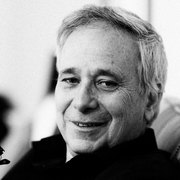
– Ilan Pappé is a professor at the University of Exeter. He was formerly a senior lecturer in political science at the University of Haifa. He is the author of The Ethnic Cleansing of Palestine, The Modern Middle East, A History of Modern Palestine: One Land, Two Peoples, and Ten Myths about Israel. He is the co-editor, with Ramzy Baroud of ‘Our Vision for Liberation.’ Pappé is described as one of Israel’s ‘New Historians’ who, since the release of pertinent British and Israeli government documents in the early 1980s, have been rewriting the history of Israel’s creation in 1948. He contributed this article to The Palestine Chronicle.

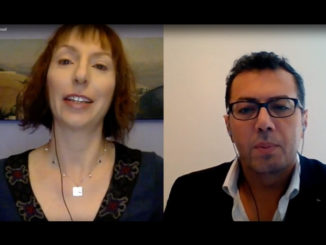
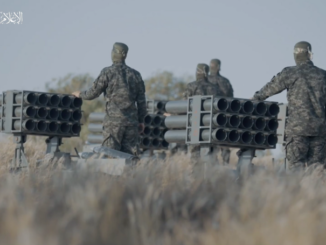
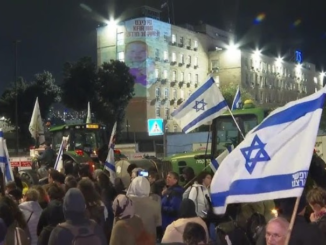




I’m ashamed of what my government has done, and is doing right now. America is at the helm of the terrorism, while they try pinning the blame on Iran, Yemen and Lebanon who are trying to protect Palestine. The ICJ, ICC, UN, UNSC, are all impotent, because Israelica has them by the balls!
Professor Pappe, your commentary and scholarship os essential. I constantly keep an eye out for everything you have to say about this painful crisis. Your foresight is invaluable.
“we should exert more pressure on the governments of the global south to be more active”. I fully agree. Now that the ICJ has established a case of plausible genocide, the old “frontline liberation” states of Mozambique, Angola, Tanzania and South Africa should refuse to allow Israeli and Israel-bound cargo ships sailing around the Cape of Good Hope to refuel at their ports.
Thank you for you excellent and informative commentary. I am ashamed of Canada’s position on Israeli aggression and it’s history of enthnic cleansing. I always appreciate hearing your thoughts on the Israel Palestine conflict. You are a treasure.
Professor Pappe, your input is invaluable as always. I am a little less pessimistic than you, against all odds, because the ICJ did open for Israel and its allies a judiciary Pandora box, as explained by many jurists. This is where your advocacy for a global citizen’s movement takes all its sense, the new judiciary tools made available on multiple levels might bring, hopefully, and with the help of BDS now justified by the ruling, the “death by a thousand cuts” of zionism.